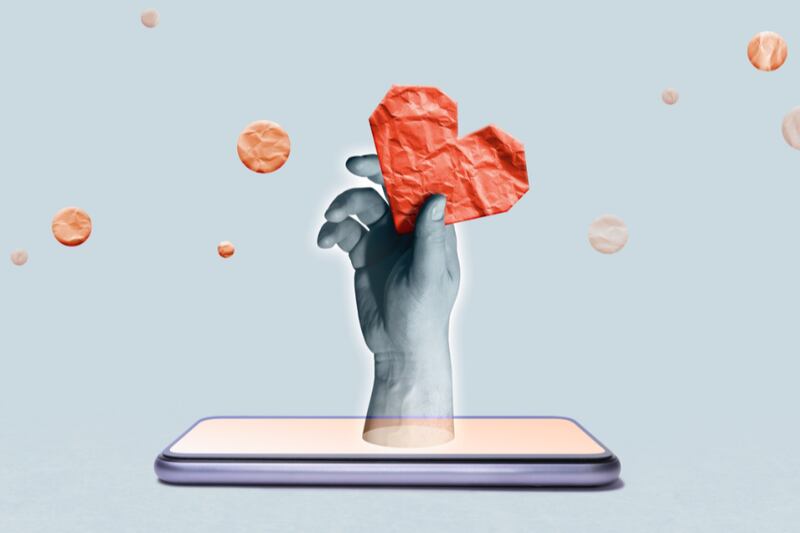An app designed exclusively for women to anonymously share “red flag” experiences about men they’ve dated has become a sensation in the US, attracting several million users and high praise for its innovative tools.
Though the app, called Tea, has gone viral and hit No 1 on the US Apple App Store, it may face hurdles being implemented in countries such as South Africa, where it is blocked from download.
Core features of the app would probably violate South Africa’s privacy laws and constitutional rights.
Tea was launched in 2023 by Sean Cook.
“Tea was born from a deeply personal mission to give women the tools they need to date safely in a world that often overlooks their protection,” the app's website says.
Cook, who witnessed his own mother’s traumatic experience with online dating including being catfished and unknowingly dating men with criminal records, used his tech industry experience to build the app.

With a background in product development at companies such as Salesforce and Shutterfly, he self-funded the app in hope of transforming women’s dating safety.
A major turning point came when Cook partnered with social media creator Daniella Szetela, who is now the app’s head of socials.
“What began as a simple idea quickly turned into a social media movement. With more than 240,000 followers on Instagram and 190,000 on TikTok, Tea’s content reaches millions each month, fuelling real conversations, empowering women and building one of the most engaged women-led communities on the internet,” the website says.
Tea offers a suite of tools to help women make safer dating decisions, including:
- reverse image to search to catch catfish;
- phone number lookup to flag hidden marriages;
- background checks to uncover criminal histories; and
- an anonymous group chat community, billed as the largest women’s dating safety group in the US.
“Dating should feel safe, informed and empowering and Tea is here to make that a reality,” the website says.
The app boasts a 4.8-star rating based on more than 70,000 reviews. It has reportedly helped more than 1.7-million women and donates 10% of its profits to the National Domestic Violence Hotline
The app boasts a 4.8-star rating based on more than 70,000 reviews. It has reportedly helped more than 1.7-million women and donates 10% of its profits to the National Domestic Violence Hotline.
One user wrote in a review: “This app has helped me protect other women by posting my ex-partner who assaulted me. It’s a powerful network for women to connect and protect each other, especially when the justice system fails us.”
Another praised its tools, saying: “It shows a map of predators in your area, something I highly suggest to women in the dating pool, or even moms who want to be aware of who’s in their surroundings. A must have.”
Despite its popularity, the app remains unavailable outside the US. For example, South Africa’s Protection of Personal Information Act (Popia) governs how personal data is collected, processed and shared.
According to Popia, people must be notified if their information such as names, images, phone numbers, or accusations of misconduct, is collected or disclosed. This goes against the app's purpose as by design it allows women to post sensitive information about men, often without their knowledge or consent.
Tea amounts to unlawfully processing information under Popia unless certain conditions such as consent or legal obligation are met.
Popia also places extra restrictions on the processing of “special personal information” such as allegations of abuse, cheating or criminal behaviour, particularly when that information is unverified or not legally substantiated.
The app’s data handling practices also raise red flags as Tea stores user data on servers outside South Africa. Popia requires strict cross-border safeguards, contracts and adequacy agreements, none of which are publicly confirmed on Tea’s platform.
Beyond Popia, the constitution guarantees the right to privacy under section 14 and dignityunder section 10. Sharing someone’s identity, relationship history or allegations of misconduct, especially online and without consent, could be viewed as a violation of these rights.
Section 10 emphasises that anonymous posts of potentially defamatory content can be damaging to a person’s dignity. South African courts have historically protected this right, particularly in defamation and privacy cases.
However, there have been growing calls on social media for Tea to be made available in South Africa, especially in the wake of rising concern about gender-based violence and online dating risks.
TimesLIVE






Would you like to comment on this article?
Sign up (it's quick and free) or sign in now.
Please read our Comment Policy before commenting.